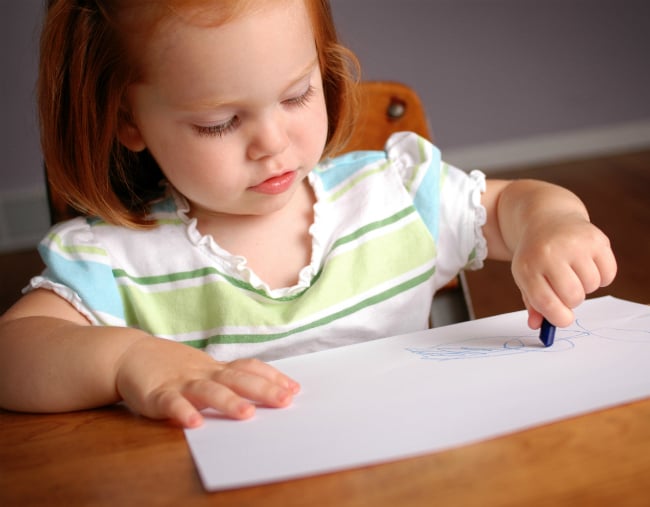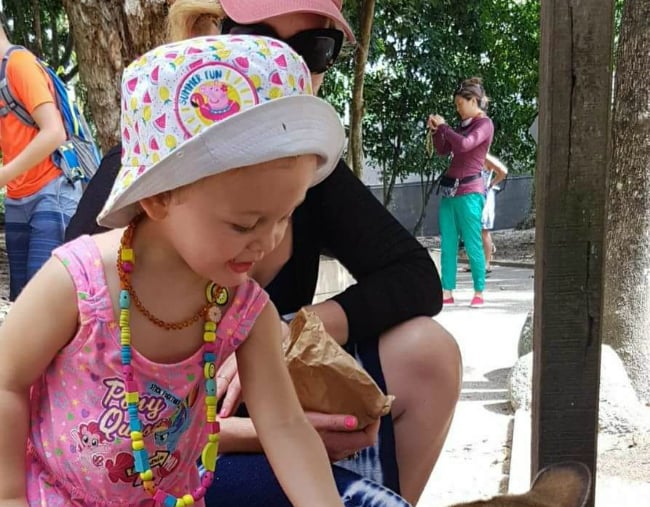
A controversial and obscure teaching technique, the Shichida Method, has seen a recent bump in popularity in Australia, one school founder says.
According to the woman who brought the Japanese method of tutoring babies and toddlers to Australia, Shiao Ling Lim, enrolments at centres in Sydney’s west have doubled in the past two years. A recently opened centre in Parramatta is already fully-booked of its 170 places, and another four centres cater to parents around NSW and Victoria.
In case you, like us, were wondering what Shichida is and what exactly it’s supposed to achieve, Shichida is a once-weekly 50-minute class for babies as young as six-months and children up to nine years old. The creators say that by using play-based learning including songs and activities they can “tap into the subconscious mind of babies”.
Shichida Australia claims the classes will create a “strong foundation” for speed reading, mental maths and a good attitude to learning. But more specifically that children as young as two who go through the program can learn to recognise the alphabet and start to read, while four-year-olds can tell the time and read at a higher level.
And if that sounds too good to be true, an educational and developmental psychologist warns it probably is.
However, Shiao Ling Lim herself says the program “is not about creating geniuses”, and instead explains its goal as “getting children to love learning”.
That’s how Melbourne mum Suzanne Shakespeare sees it. The opera singer has been taking her two-and-a-half-year-old daughter Matilda to regular sessions since she was about 20 months.
“It’s enjoyable. She enjoys it. I enjoy it.” told Mamamia.


Top Comments
I was a former instructor for Shichida Methods in Malaysia and it actually works. However, due to a lack of English journals, many people misunderstood and did not understand the power of right brain function. If Dr Allen is a good psychologist, she should have done her due diligence that there are some books published Dr Makoto Shichida and his former two protegees (Pamela Hickein and Ruiko Henmi) in English language. Instead of debunking Dr Makoto effort (God rest his soul in heaven), Dr Allen could email to Shichida Institute and ask for the journals or links to buy the books. Vice versa, she could try to contact Ruiko or Pamela who have done a lot of research in the right brain educations.
I have to voice out as I know when someone did not do a proper research irregardless of their PhD degree!!!